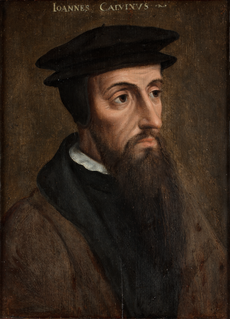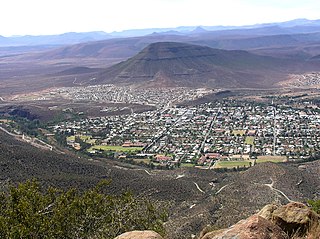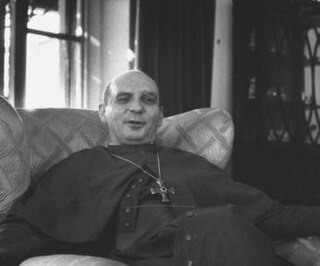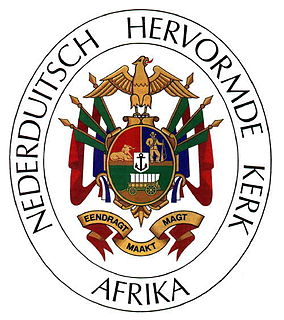History
The Christian Institute of Southern Africa was founded in 1963 by 280 Christians (Hexham 1980) that included Albert Geyser, Ben Marais, D. C. S. Oosthuizen, and John de Gruchy. Factors that contributed to the founding was the need to continue dialogue after the disastrous conclusion of the 1960 Cottesloe Consultation, the last time that all South African churches met until 1990. Reformed members of the CI could also critique official Dutch Reformed policies, which included support for apartheid. The 1963 South Transvaal Synod of the Dutch Reformed Church had forbidden unofficial comments that were not submitted through official channels (Maritz 2003:56).
The first national director of the Christian Institute (CI) was Dr C F Beyers Naudé. John de Gruchy, a Congregationalist minister and later an academic at the University of Cape Town, was a founder member. CI's constitution was drawn up by two Johannesburg advocates, Colin Kinghorn and Johann Kriegler (later a founding justice of the Constitutional Court of South Africa). Pro Veritate , a newsletter produced by Naudé, was adopted as the mouthpiece of the CI.
Brian Brown was CI's Administrative Director, Cedric Mayson edited Pro Veritate, while Theo Kotze (1920-July 4, 2003 ) directed the work of the CI in Cape Town. (De Gruchy 2005:104,109) . Peter Randall led the 'Study Project on Christianity in an Apartheid Society' that was jointly sponsored by the CI and the South African Council of Churches.

Afrikaner Calvinism is a cultural and religious development among Afrikaners that combined elements of seventeenth-century Calvinist doctrine with a "chosen people" ideology based in the Bible. It had origins in ideas espoused in the Old Testament of the Jews as the chosen people.

Christiaan Frederick Beyers Naudé was a South African cleric, theologian and the leading Afrikaner anti-apartheid activist. He was known simply as Beyers Naudé, or more colloquially, Oom Bey.

Graaff-Reinet is a town in the Eastern Cape Province of South Africa. It is the fifth-oldest town in South Africa, after Cape Town, Stellenbosch, and Paarl then Swellendam. The town was the centre of a short-lived republic in the late 18th century. The town was a starting point for Great Trek groups led by Gerrit Maritz and Piet Retief and furnished large numbers of the Voortrekkers in 1835–1842.

Joost de Blank was a Dutch-born British Anglican bishop. He was the Archbishop of Cape Town, South Africa from 1957 to 1963 and was known as the "scourge of apartheid" for his ardent opposition to the whites-only policies of the South African government.
The South African Council of Churches (SACC) is an interdenominational forum in South Africa. It was a prominent anti-apartheid organisation during the years of apartheid in South Africa. Its leaders have included Desmond Tutu, Beyers Naudé and Frank Chikane. It is a member of the Fellowship of Christian Councils in Southern Africa.

Dion Angus Forster is an ordained Minister of the Methodist Church of Southern Africa. He is a theologian and author. He was formerly the Dean of the Seminary of the Methodist Church of Southern Africa, John Wesley College. Prof. Forster is the International Chairman of the 'EXPOSED – shining a light on corruption' campaign. He teaches Systematic Theology and Ethics, with a focus on Public Theology in the Faculty of Theology at Stellenbosch University. He serves as the Director of the Beyers Naudé Centre for Public Theology at Stellenbosch University.
Barend Bartholomeus Keet (1885–1974) was an Afrikaner theologian. He is best known for his rejection of the theological basis of separate development and apartheid policies. He was one of the translators of the first official translation of the entire Bible into Afrikaans, in 1933.

Many people of European heritage in South Africa are descended from Huguenots. Most of these originally settled in the Cape Colony, but were absorbed into the Afrikaner and Afrikaans-speaking population, because they had religious similarities to the Dutch colonists.
Peter Ralph Randall was an anti-apartheid publisher in South Africa, and was banned by the former South African government between 1977 and 1981. He later became a professor in charge of teacher education at the University of the Witwatersrand, Johannesburg.

The Dutch Reformed Church in Africa is a Reformed Christian denomination based in Southern Africa. It also has congregations in Namibia, Botswana, Zambia and Zimbabwe. Along with the Dutch Reformed Church in South Africa (NGK) and the Reformed Churches in South Africa, the NHKA is one of the three Dutch Reformed sister churches of South Africa. The NHKA retains the old Nomenclature Nederduitsch, the word originally referring to the Dutch language. The word refers to the Low Saxon language today. The Dutch language remained the official language of the church until 1933 when the church started functioning almost exclusively in Afrikaans.
The Schlebusch Commission was a parliamentary commission established in 1972 by the South African government of Prime Minister BJ Vorster to investigate four anti-apartheid civil society organizations.

Albertus (Albert) Stephanus Geyser was a South African cleric, scholar and anti-apartheid theologian. Geyser became an outcast in the white Afrikaner community because of his theological opposition to apartheid and to the Broederbond, the secret male Calvinist organisation that covertly steered South African politics during the apartheid era. He obtained master's and doctoral degrees cum laude, specializing in Greek and Latin. At the age of 27 he was appointed lecturer, and a year later, professor in the Theological Faculty of the Nederduitsch Hervormde Kerk at the University of Pretoria. Geyser contributed to the first annotated edition (1953–1958) of the Bible in Afrikaans, founded the Christian Institute, and was the first South African to be elected as a member of Studiorum Novi Testamenti Societas.
Pro Veritate was a Christian independent monthly journal published in South Africa by the Christian Institute of Southern Africa from 1962 to 1977.

Christianity is the dominant religion in South Africa, with almost 80% of the population in 2001 professing to be Christian. No single denomination predominates, with mainstream Protestant churches, Pentecostal churches, African initiated churches, and the Catholic Church all having significant numbers of adherents. Importantly, there is significant and sustained syncretism with African Traditional Religion among most of the self-professed Christians in South Africa.
Dr. Robert S. Bilheimer was an American Presbyterian theologian. In his 1947 book What Must the Church Do?, he used the phrase "New Reformation" to refer to the ecumenical movement that resulted from the 1910 World Missionary Conference, and this usage became commonplace thereafter. He was one of the co-founders of the World Council of Churches (WCC). He later gave credit for the most of the founding of the organization to laity and young people. From 1955-1958, he co-chaired a WCC international commission to prepare a document addressing the threat of nuclear warfare during the Cold War. As a WCC delegate, he prepared the Cottesloe Consultation, which took place in December 1960 and saw the WCC meet with representatives from the eight main Christian denominations in South Africa in order to address the issue of apartheid. He served as Associate General Secretary and Director of the Division of Studies of the WCC, Executive Director of the Institute for Ecumenical and Cultural Research, and Director of the International Affairs Program of the National Council of Churches. He wrote the 1984 book A Spirituality for the Long Haul: Biblical Risk and Moral Stand, in which he provides a biblical basis for resisting oppression. He also wrote the 1989 book Breakthrough: The Emergence of the Ecumenical Tradition, which was one of several books about ecumenism that were published by William B. Eerdmans Publishing Company in the late 20th century.

John W. de Gruchy is a Christian theologian known for his work resisting apartheid. He is presently Emeritus Professor at the University of Cape Town and Extraordinary Professor at the University of Stellenbosch.

Dr Beyers Naudé Local Municipality is a new local municipality that was established by merging the Camdeboo, Ikwezi and Baviaans local municipalities in the Sarah Baartman District of the Eastern Cape in South Africa. The decision to merge the municipalities was taken by the Municipal Demarcation Board in 2015 but only took effect after municipal elections on 3 August 2016. The new municipality is named after the Afrikaner cleric and anti-apartheid activist Beyers Naudé. Its seat is in Graaff-Reinet.
Jozua Francois Naudé was a South African pastor, school founder and co-founder of the Afrikaner Broederbond.
The Parkhurst Reformed Church was a congregation of the Dutch Reformed Church in South Africa (NGK) that was active from 1944 to 1996 in the Johannesburg suburb of Parkhurst.
The Potchefstroom Reformed Church (in Potchefstroom, North West, South Africa, is the oldest congregation of the Dutch Reformed Church in South Africa in what was then the Transvaal or South African Republic. At its founding in March 1842, it was the 28th congregation in what would later become South Africa and the tenth outside of the Western and Southern Cape Synod.











